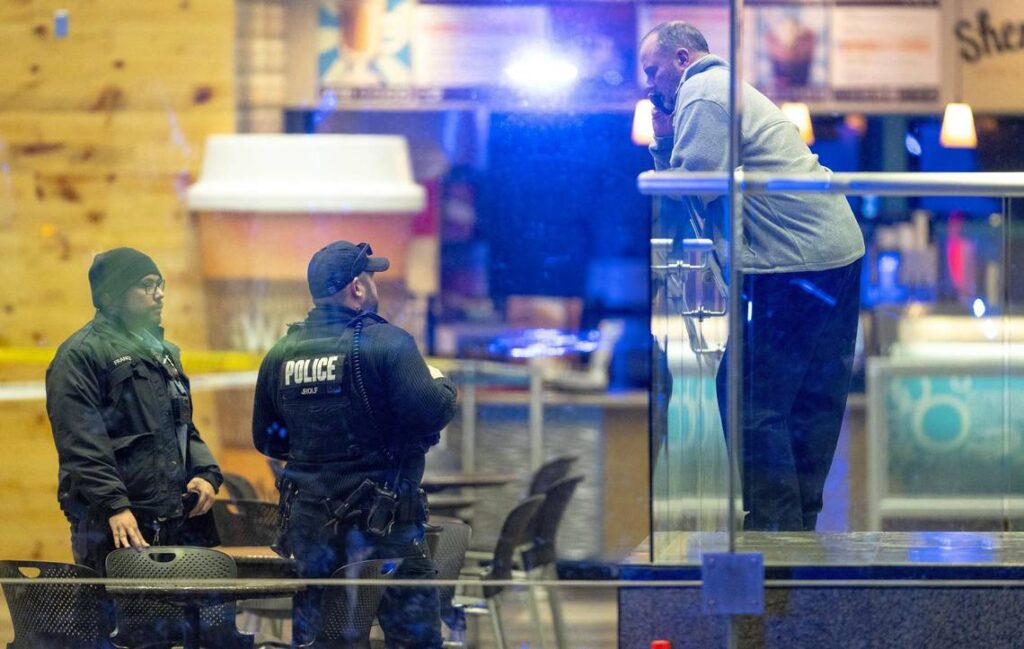In a significant ruling by a Jackson County judge on Friday, two men, Joel Olivas, 24, and Brian Favela, 23, were found guilty on multiple felony charges stemming from a mass shooting incident at the Crown Center in Kansas City, Missouri, on January 17, 2024. They were convicted on two counts of unlawful use of a weapon, two counts of armed criminal action, and three misdemeanor counts of second-degree harassment. A single count of unlawful use of a weapon and one count of armed criminal action were dismissed due to insufficient evidence supporting that the defendants acted in self-defense, a determination made in light of Missouri’s self-defense laws. By opting for a bench trial, Olivas and Favela chose to have their cases decided by a judge instead of a jury.
The court found that the shooting incident resulted from an escalating altercation between two groups within the Crown Center mall, where tensions flared around 5:45 p.m. Witness accounts indicated that the confrontation involved heated exchanges, with terms referencing gang affiliations such as “east side” and “west side” being used. The situation escalated when members of Olivas and Favela’s group engaged the opposing faction, which allegedly provoked retaliation. Eyewitnesses reported that Olivas and Favela drew their firearms and opened fire after a member of the opposing group shot first. The violence led to six individuals sustaining non-life-threatening injuries, underscoring the chaotic nature of the confrontation.
Court documents revealed that both Olivas and Favela were affiliated with an East Side gang and that they engaged in the shootout targeting individuals believed to be part of a West Side gang. Surveillance footage collected from the mall showed Olivas wielding a handgun capable of automatic fire and Favela firing what appeared to be a MAC-10 assault weapon. This evidence contrasted with the defense’s arguments that claimed the shooting was a self-defense measure, which the judge ultimately rejected based on the circumstances recorded at the scene. The court noted that self-defense was not plausible since the two men actively pursued their opponents down a mall hallway, even as members of the other group appeared to be retreating from the conflict.
In the aftermath of the shooting, significant evidence was collected, including 54 spent shell casings found predominantly on the first floor of the mall. The casings indicated that a significant amount of gunfire occurred, with extensive damage reported in various restaurants and public spaces within the shopping center. Witness testimonies and recorded evidence further illustrated the premeditated threat posed by Olivas and Favela before the shooting commenced, with indications that they had come specifically to confront members of the rival group.
Jackson County Prosecutor Jean Peters Baker expressed satisfaction with the verdict, emphasizing the importance of accountability in cases involving gun violence, even when defendants might invoke self-defense laws. She highlighted the strong collaboration among law enforcement and management at Crown Center and Hallmark in bringing the case to trial. Baker’s comments reflect a broader commitment by her office to seek justice in violent crimes and hold individuals accountable for their actions. The judge’s ruling is seen as a reaffirmation of the legal standards surrounding self-defense and the necessity for the responsible use of firearms.
As Olivas and Favela await sentencing, scheduled for December 12, they remain in custody. The case serves as a poignant reminder of the impacts of gang-related violence and the legal ramifications that follow such events. The focus now turns to the sentencing phase, where the severity of the convictions could lead to substantial penalties for the defendants, further underscoring the judicial system’s role in addressing gun violence within communities. The Crown Center shooting stands as a testament to the ongoing challenges of gang-related activities and their implications for public safety, as well as the legal frameworks intended to combat such issues.

